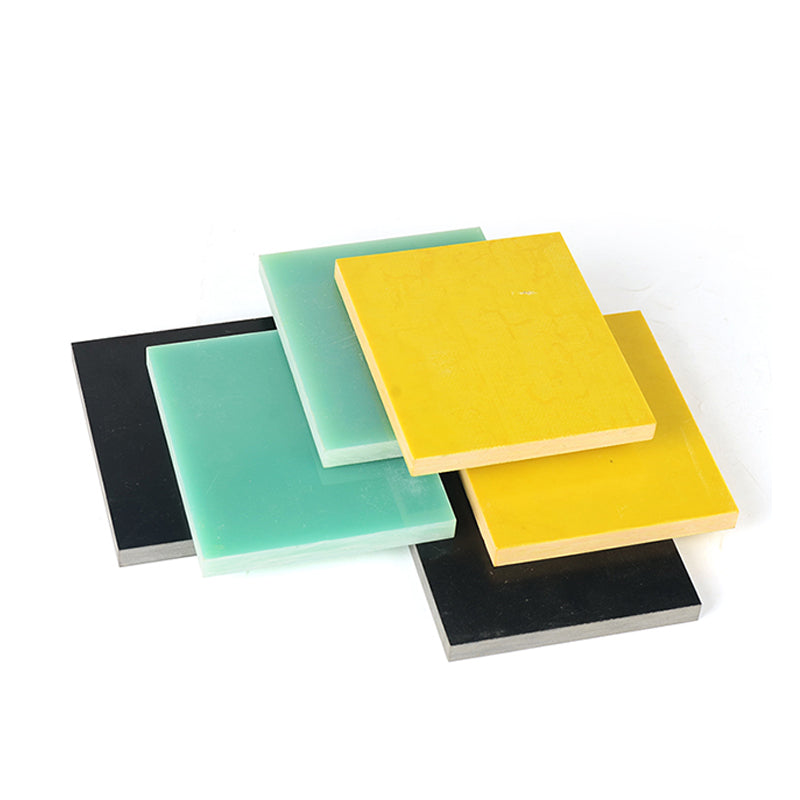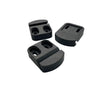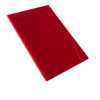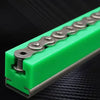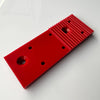Why ABS Sheets Are the Top Choice for Automotive Interior Components
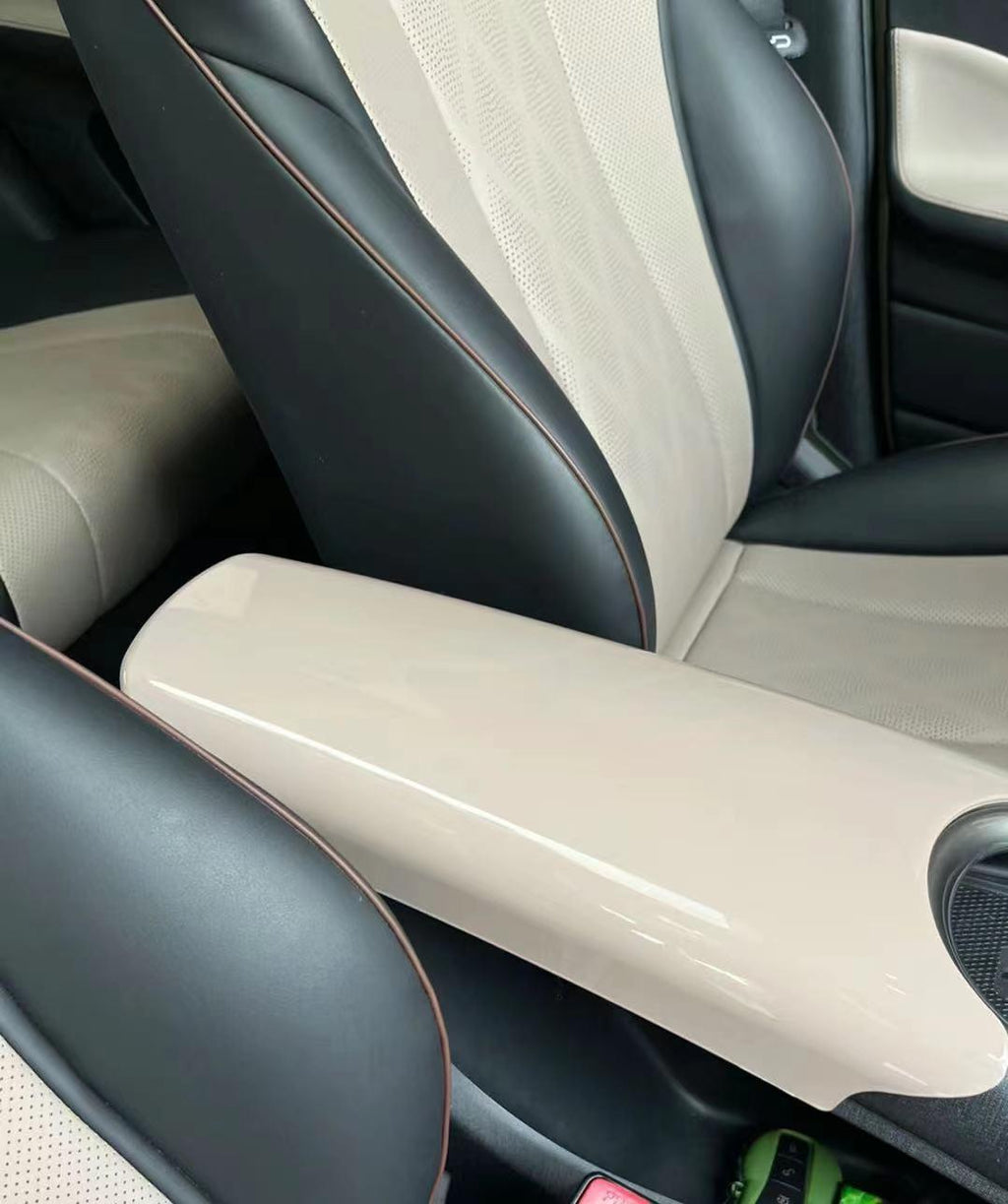
In the blog post "Why ABS Sheets Are the Top Choice for Automotive Interior Components," we delve into the multifaceted advantages of Acrylonitrile Butadiene Styrene (ABS) in the automotive sector. Discover why ABS's durability and performance make it the go-to material for interior car components, capable of withstanding extreme conditions while maintaining its structural integrity. We also explore its cost-effectiveness, showing how ABS not only enhances production efficiency but also reduces manufacturing costs, making it a financially attractive option for car makers.
🎉 Limited Time Special Offer
Use code below at checkout and enjoy a special discount on your entire order!
Further, the post highlights the aesthetic flexibility of ABS, which allows for a range of textures and finishes to suit any car interior design theme. The sustainability of ABS is examined, addressing how its recyclability supports the automotive industry's shift towards more sustainable practices. Lastly, a comparative analysis with other plastics like polypropylene and polycarbonate underscores why ABS is often the preferred choice due to its balanced properties of strength, aesthetics, and affordability.
This comprehensive guide offers valuable insights into why ABS sheets are essential in crafting durable, stylish, and cost-effective automotive interiors, reinforcing their standing as a pivotal material in modern vehicle manufacturing.

Durability and Performance: Why Acrylonitrile Butadiene Styrene (ABS) is Ideal for Automotive Interiors

Unmatched Impact Resistance
One of the primary reasons why Acrylonitrile Butadiene Styrene (ABS) stands out in the automotive industry is its exceptional impact resistance. Vehicles undergo various stress tests to ensure safety and durability, and ABS materials consistently meet these rigorous standards. The high-impact strength of ABS allows it to absorb shocks without breaking or deforming, making it an ideal choice for parts like dashboards and door panels where protection and resilience are paramount.
Superior Shape Retention
Alongside its toughness, ABS's ability to retain shape under thermal stress is a significant benefit. Automotive interiors are exposed to a range of temperatures, from freezing cold to the scorching heat of sunlight through car windows. ABS excels in maintaining its form and functionality without warping, thanks to its thermal stability. This property ensures that once your car's components are molded into their precise dimensions, they will hold that form for their entire usable life.
Lightweight Yet Strong
The lightweight nature of ABS is yet another advantage for its use in automotive interiors. Reducing the overall weight of a vehicle can lead to better fuel efficiency and improved performance. Despite its lightness, ABS does not sacrifice strength or durability, supporting the vehicle’s structural integrity and safety standards. This balance makes ABS an optimal choice for large components that need to remain light but strong, such as console enclosures and other interior fittings.
Customization and Aesthetics
ABS is not only practical but also versatile in terms of aesthetics. It can be manufactured in a variety of colors and finishes, adapting easily to the stylish demands of modern automotive interiors. This adaptability allows manufacturers to use ABS in visible areas of the car’s interior, not just where strength is required but also where style is important.
The robustness, thermal resistance, and lightness of ABS make it an unparalleled choice for the automotive sector, ensuring that it continues to play a critical role in the development of safe, efficient, and appealing vehicle interiors. With its ability to meet the diverse and demanding needs of modern automobiles, ABS remains a fundamental material in the industry.
Cost-Effectiveness of ABS Plastic in Car Manufacturing
Affordability of ABS Materials
One of the standout features of Acrylonitrile Butadiene Styrene (ABS) in automotive manufacturing is its cost-effectiveness. ABS is known for being economically feasible, which makes it an attractive option for car manufacturers looking to manage production costs without sacrificing quality. The affordability of ABS comes from its low raw material cost and the efficient production processes it supports. This cost efficiency is crucial in the competitive automotive market, where controlling expenditure can significantly impact overall profitability.

Reduction in Manufacturing Costs
ABS not only boasts a lower cost of materials but also contributes to reduced manufacturing expenses. Its ease of handling and processing allows for faster production cycles, which in turn decreases labor costs and energy consumption. Furthermore, ABS can be injection molded and extruded, which are cost-effective methods of shaping plastic materials. These processes are not only quicker but also less wasteful compared to other methods, further driving down production costs.
Durability and Waste Reduction
The durability of ABS also plays a crucial role in its cost-effectiveness. Due to its high impact resistance and strength, ABS products typically have lower rates of breakage during both the manufacturing process and the product's lifecycle. This durability translates to fewer returns and replacements, which is a significant cost saving for manufacturers. Additionally, ABS's ability to be recycled contributes to minimizing waste and reducing costs associated with waste management.
Long-Term Savings and Consumer Satisfaction
Investing in ABS plastic can lead to long-term savings for automotive manufacturers. By producing more durable and longer-lasting components, manufacturers can enhance their brand reputation and increase consumer satisfaction. These factors often result in higher customer retention rates and can also lead to savings in warranty claims and customer service. The use of ABS thus not only saves money in the short term through production efficiencies but also in the long term through enhanced product quality and brand loyalty.
The affordability and reduced production costs associated with ABS plastic make it a preferred material in the automotive industry. Its impact on reducing manufacturing waste and enhancing product durability further enhances its cost-effectiveness, making it a smart choice for manufacturers aiming to optimize their production operations and achieve better cost management.
Aesthetic Flexibility: Crafting Stylish Interiors with ABS Sheets

Versatility in Design and Texture
One of the most appealing aspects of Acrylonitrile Butadiene Styrene (ABS) for automotive interiors is its aesthetic versatility. ABS sheets are highly adaptable, allowing manufacturers to craft a wide range of textures and finishes. This flexibility makes ABS an ideal choice for various interior components, such as dashboards, door panels, and trim pieces. Whether the goal is a matte finish, a high gloss, or a textured surface that mimics other materials like wood or carbon fiber, ABS can be customized to meet these design requirements.
Color Customization
Beyond texture, ABS sheets offer extensive color customization options. This is crucial for the automotive industry, where matching interior colors to exterior paint or creating a color theme within a vehicle is essential for aesthetic coherence. The ability to integrate custom coloration directly into the ABS production process eliminates the need for additional painting or finishing, which can reduce costs and production time.
Innovative Applications and Finishes
The innovative use of ABS in automotive interiors is not limited to conventional textures and colors. Recent advancements in manufacturing technology have enabled the creation of more complex designs and effects, such as metallic finishes and integrated lighting features. These advancements enhance the visual appeal of car interiors, providing a luxurious and modern feel that can be crucial for market differentiation.
Sustainability and Aesthetic Appeal
Moreover, the combination of aesthetic appeal and sustainability in ABS production is becoming increasingly important. As consumers become more environmentally conscious, the ability to use a recyclable material like ABS that does not compromise on style is a significant advantage. This balance of ecological responsibility and visual appeal is likely to become even more critical in the future as industry trends lean towards sustainability.
ABS's ability to be shaped, colored, and finished in a variety of ways makes it an exceptional material for automotive interior design. Its adaptability not only meets the diverse aesthetic demands of the automotive market but also supports cost-effective manufacturing practices. This makes ABS sheets a key component in crafting visually appealing, stylish, and sustainable vehicle interiors.
Sustainability Aspect of Using ABS in the Automotive Industry
Recyclability of ABS
One of the primary sustainability benefits of Acrylonitrile Butadiene Styrene (ABS) is its recyclability. Unlike many plastics, ABS does not lose its structural integrity after recycling. This makes it possible to reuse ABS scrap from automotive parts manufacturing, reducing the need for virgin material and lowering the carbon footprint associated with production. Automotive manufacturers are increasingly adopting practices that allow them to recover and recycle ABS from end-of-life vehicles, turning what would be waste into valuable resources for new components.
Eco-Friendly Manufacturing Initiatives
The automotive industry is making concerted efforts to enhance the environmental friendliness of ABS production. These initiatives include reducing emissions during the manufacturing process and integrating more sustainable practices such as using renewable energy sources. Furthermore, advancements in chemical research have led to the development of bio-based versions of ABS, which incorporate renewable materials such as natural fibers and bio-plastics, reducing dependency on fossil fuels.

Lifecycle Impact Reduction
The durability and longevity of ABS also contribute to its sustainability. By extending the life of automotive components, ABS reduces the frequency of replacement, thereby diminishing the overall material consumption over the life of a vehicle. This longevity not only makes ABS a more sustainable choice but also enhances the vehicle's value from an environmental perspective.
Challenges and Future Directions
While ABS is recyclable and durable, challenges remain in increasing its sustainability. The automotive industry continues to explore ways to improve the recyclability rates of ABS further and reduce the environmental impact of its production. Innovations in additive manufacturing, such as 3D printing with recycled ABS, are promising areas that could enhance the usability of recycled ABS in new and more complex applications.
The focus on sustainability within the automotive industry has made ABS an increasingly attractive material. Its ability to be recycled and reprocessed without significant degradation helps mitigate the environmental impact of plastic use in automotive manufacturing. With ongoing advancements in sustainable practices and materials science, ABS is set to remain a key component in the development of eco-friendly automotive solutions.
Comparative Analysis: ABS vs. Other Plastic Materials in Automotive Applications

Strength and Durability
When comparing Acrylonitrile Butadiene Styrene (ABS) with other plastics like polypropylene (PP) and polycarbonate (PC), ABS often stands out for its superior strength and durability. ABS combines the toughness of polybutadiene rubber with the stiffness and hardness of acrylonitrile and styrene polymers, making it highly resistant to physical impacts and chemical corrosions. This blend of properties is essential for automotive interior components, which must withstand significant wear and tear over the vehicle's lifetime. In contrast, while polypropylene is similarly durable and resistant to chemical solvents, it generally offers less rigidity compared to ABS. Polycarbonate, though stronger in terms of impact resistance, tends to be more expensive and less resistant to scratches, making ABS a more balanced choice for most automotive applications.
Thermal Stability
ABS exhibits excellent thermal stability, retaining its shape and function even when exposed to high temperatures, a common scenario in automotive environments. This characteristic is crucial for components that are near the engine or exposed to sunlight. Polycarbonate also has good thermal properties but at a higher material cost. Polypropylene, while suitable for high temperatures, can deform more easily under heat, limiting its use in areas exposed to intense thermal cycles.
Aesthetics and Finishing Options
From an aesthetic viewpoint, ABS's ability to be easily colored and finished to a high-quality appearance makes it highly versatile for interior design options. It can be manufactured in various colors and textures, and can even mimic the look of more expensive materials like wood or metal through different finishing techniques. Polycarbonate offers a clear advantage in transparency and light transmission, which is beneficial for applications like sunroofs and other clear elements, but for most other components, the colorability and finish quality of ABS are more relevant. Polypropylene can be somewhat dull and more challenging to finish to a high aesthetic standard compared to ABS.
Cost-Effectiveness
In terms of cost-effectiveness, ABS generally provides a good balance of performance and price, making it an economical choice for automotive manufacturers. It is less expensive than polycarbonate and offers better performance features compared to polypropylene in many applications. The ability to use ABS extensively across different parts of the vehicle also helps manufacturers streamline their materials procurement and reduce costs related to inventory and production processes.
Environmental Considerations
Sustainability is increasingly important in material selection, and here too, ABS offers advantages. It is more recyclable than many other plastics, including certain grades of polycarbonate and polypropylene. This recyclability appeals to automotive companies looking to improve their environmental footprint and comply with regulatory standards for material reuse and waste reduction.
ABS's combination of durability, thermal stability, aesthetic flexibility, cost-effectiveness, and relative environmental friendliness often makes it the top choice over polypropylene and polycarbonate for automotive interior components. These characteristics ensure that ABS can meet the diverse needs of modern automotive design and manufacturing, maintaining its position as a preferred material in the industry.
Frequently Asked Questions About ABS Sheets and Beeplastics Customization
1. What is Acrylonitrile Butadiene Styrene (ABS)?
Answer: ABS is a thermoplastic polymer commonly used in manufacturing a wide range of products, including automotive interior components, due to its strong, durable, and heat-resistant properties. It combines the strength and rigidity of acrylonitrile and styrene with the toughness of polybutadiene rubber.
2. Why choose ABS for automotive interiors?
Answer: ABS is favored for automotive interiors because of its high impact resistance, excellent thermal stability, and ability to be customized aesthetically. It's also lightweight, which helps in improving fuel efficiency of vehicles.
3. Can Beeplastics undertake any customization of ABS sheets?
Answer: Yes, Beeplastics offers extensive customization options for ABS sheets, including both sample and batch customization, tailored to meet specific customer needs.
4. What file formats does Beeplastics accept for custom orders?
Answer: Beeplastics accepts a variety of file formats, including PDF and CAD files, to accommodate different design specifications and ensure precise customization.
5. Is there a minimum order quantity (MOQ) required for custom ABS sheets at Beeplastics?
6. How is the production cycle determined at Beeplastics?
Answer: The production cycle at Beeplastics depends on the order quantity and the complexity of the customization. Beeplastics communicates with clients throughout the process to keep them updated on production progress.
7. Does Beeplastics provide samples for ABS sheets?
Answer: Yes, Beeplastics supports providing samples for clients to review before proceeding with larger orders. The samples are free of charge; however, the customer is responsible for the shipping costs.
8. What makes ABS a sustainable choice for automotive manufacturing?
Answer: ABS is considered a more sustainable option due to its recyclability, which helps in reducing waste and promoting reuse of materials in the manufacturing cycle.
9. What are the challenges of using ABS in automotive applications?
Answer: While ABS has many benefits, challenges include sensitivity to UV exposure which can lead to degradation if not properly treated with additives or protective coatings. Also, while recyclable, ABS recycling infrastructure and processes need to be more robust globally.
10. How does ABS compare to other plastics like polypropylene or polycarbonate in automotive applications?
Answer: ABS often emerges as the top choice due to its balanced properties of strength, thermal stability, and cost-effectiveness. Unlike polycarbonate, ABS is less expensive and offers easier processing options, while it provides better rigidity and finishing options compared to polypropylene.
In conclusion, ABS sheets represent a superior choice for automotive interior components due to their exceptional durability, aesthetic flexibility, and cost-effectiveness. With the ability to withstand harsh environmental conditions, maintain their form under pressure, and adapt to various design requirements, ABS continues to stand out in the materials market. Beeplastics further enhances the value of ABS with its comprehensive customization services, accommodating any project size without a minimum order requirement and supporting a seamless design-to-production process. Whether you are prototyping a new part or ramping up for full-scale production, Beeplastics' commitment to quality, coupled with the intrinsic benefits of ABS, ensures that your automotive components meet the highest standards of performance and design aesthetics.

Transform Your Production with High-Quality ABS Sheets
Are you looking for versatile, durable, and aesthetically pleasing materials for your automotive interiors? Look no further. Click here to explore our advanced ABS plastic machining solutions and see how Beeplastics can help streamline your manufacturing process. If you have specific requirements or need expert advice, Start Your Project Quote →
Use code: QR4GNY08SHVR at checkout for your discount!
-
Posted in
ABS sheets, automotive interior components, car parts, cost-effectiveness, durability, engineering plastic, manufacturing, plastic, polymer, versatility

